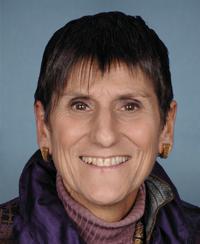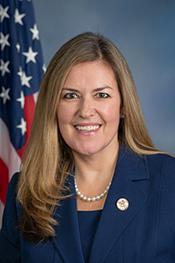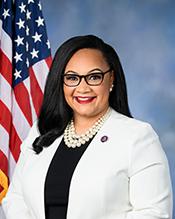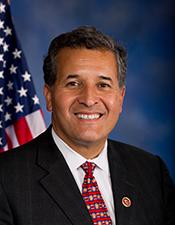0
0
0
Healthy Families Act
12/23/2023, 8:15 AM
Summary of Bill HR 3409
Bill 118 hr 3409, also known as the Healthy Families Act, is a piece of legislation currently being considered by the US Congress. The main goal of this bill is to provide paid sick leave to employees in order to promote the health and well-being of families across the country.
Under the Healthy Families Act, employees would be able to earn up to seven days of paid sick leave each year to use for their own illness, to care for a sick family member, or to attend medical appointments. This paid sick leave would be accrued based on the number of hours worked, with employees earning one hour of sick leave for every 30 hours worked.
The bill also includes provisions to protect employees from retaliation for using their sick leave and prohibits employers from requiring documentation of illness unless the employee is absent for more than three consecutive days. Additionally, the Healthy Families Act would apply to all employers with 15 or more employees, ensuring that a wide range of workers have access to paid sick leave. Supporters of the bill argue that providing paid sick leave is essential for the health and well-being of families, as it allows employees to take care of themselves and their loved ones without fear of losing income. They also believe that paid sick leave can help prevent the spread of illness in the workplace and improve overall productivity. Opponents of the bill, however, raise concerns about the potential costs to employers and the impact on small businesses. They argue that mandating paid sick leave could lead to increased operational expenses and hinder job creation. Overall, the Healthy Families Act aims to strike a balance between the needs of employees and the concerns of employers, with the ultimate goal of promoting the health and well-being of families across the United States.
Under the Healthy Families Act, employees would be able to earn up to seven days of paid sick leave each year to use for their own illness, to care for a sick family member, or to attend medical appointments. This paid sick leave would be accrued based on the number of hours worked, with employees earning one hour of sick leave for every 30 hours worked.
The bill also includes provisions to protect employees from retaliation for using their sick leave and prohibits employers from requiring documentation of illness unless the employee is absent for more than three consecutive days. Additionally, the Healthy Families Act would apply to all employers with 15 or more employees, ensuring that a wide range of workers have access to paid sick leave. Supporters of the bill argue that providing paid sick leave is essential for the health and well-being of families, as it allows employees to take care of themselves and their loved ones without fear of losing income. They also believe that paid sick leave can help prevent the spread of illness in the workplace and improve overall productivity. Opponents of the bill, however, raise concerns about the potential costs to employers and the impact on small businesses. They argue that mandating paid sick leave could lead to increased operational expenses and hinder job creation. Overall, the Healthy Families Act aims to strike a balance between the needs of employees and the concerns of employers, with the ultimate goal of promoting the health and well-being of families across the United States.
Read the Full Bill
Current Status of Bill HR 3409
Bill HR 3409 is currently in the status of Bill Introduced since May 17, 2023. Bill HR 3409 was introduced during Congress 118 and was introduced to the House on May 17, 2023. Bill HR 3409's most recent activity was Referred to the Committee on Education and the Workforce, and in addition to the Committees on House Administration, and Oversight and Accountability, for a period to be subsequently determined by the Speaker, in each case for consideration of such provisions as fall within the jurisdiction of the committee concerned. as of May 17, 2023
Bipartisan Support of Bill HR 3409
Total Number of Sponsors
1Democrat Sponsors
1Republican Sponsors
0Unaffiliated Sponsors
0Total Number of Cosponsors
210Democrat Cosponsors
210Republican Cosponsors
0Unaffiliated Cosponsors
0Policy Area and Potential Impact of Bill HR 3409
Primary Policy Focus
Labor and EmploymentAlternate Title(s) of Bill HR 3409
Healthy Families Act
Healthy Families Act
To allow Americans to earn paid sick time so that they can address their own health needs and the health needs of their families.
Comments
Sponsors and Cosponsors of HR 3409
Latest Bills
Providing amounts for the expenses of the Committee on Ethics in the One Hundred Nineteenth Congress.
Bill HRES 131December 12, 2025
Providing for congressional disapproval under chapter 8 of title 5, United States Code, of the rule submitted by the Bureau of Land Management relating to "Central Yukon Record of Decision and Approved Resource Management Plan".
Bill HJRES 106December 12, 2025
Expressing the sense of the House of Representatives in condemning the Government of the People's Republic of China for its harassment and efforts to intimidate American citizens and other individuals on United States soil with the goal of suppressing speech and narratives the People's Republic of China finds unwelcome.
Bill HRES 130December 12, 2025
Providing for congressional disapproval under chapter 8 of title 5, United States Code, of the rule submitted by the Bureau of Land Management relating to "North Dakota Field Office Record of Decision and Approved Resource Management Plan".
Bill HJRES 105December 12, 2025
Providing for congressional disapproval under chapter 8 of title 5, United States Code, of the rule submitted by the Bureau of Land Management relating to "Miles City Field Office Record of Decision and Approved Resource Management Plan Amendment".
Bill HJRES 104December 12, 2025
Providing amounts for the expenses of the Select Committee on the Strategic Competition Between the United States and the Chinese Communist Party in the One Hundred Nineteenth Congress.
Bill HRES 104December 12, 2025
Critical Access for Veterans Care Act
Bill S 1868December 12, 2025
OATH Act of 2025
Bill S 1665December 12, 2025
A bill to extend the authority for modifications to the Second Division Memorial in the District of Columbia.
Bill S 1353December 12, 2025
Saving Our Veterans Lives Act of 2025
Bill S 926December 12, 2025
Healthy Families Act
Bill S 1664March 12, 2024





